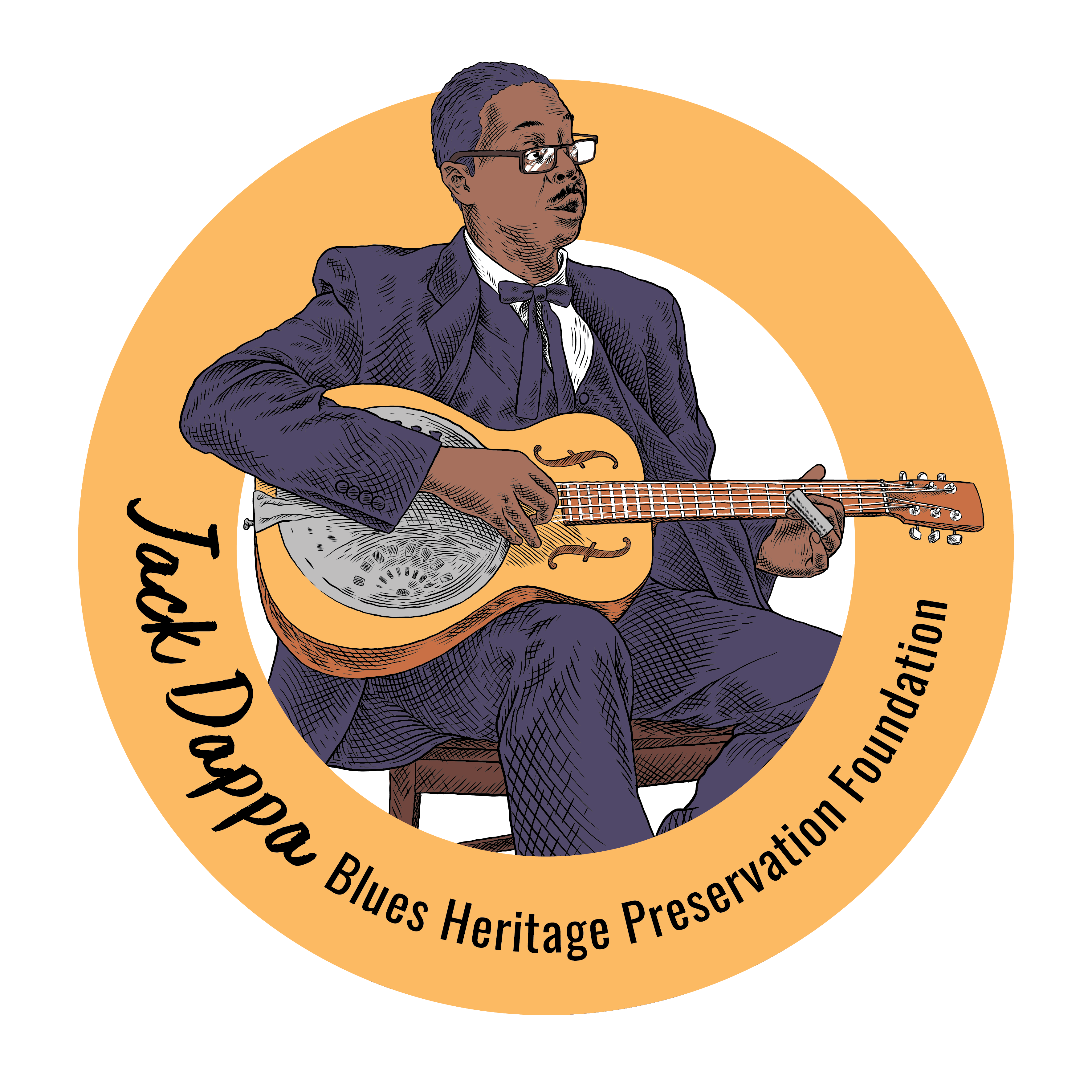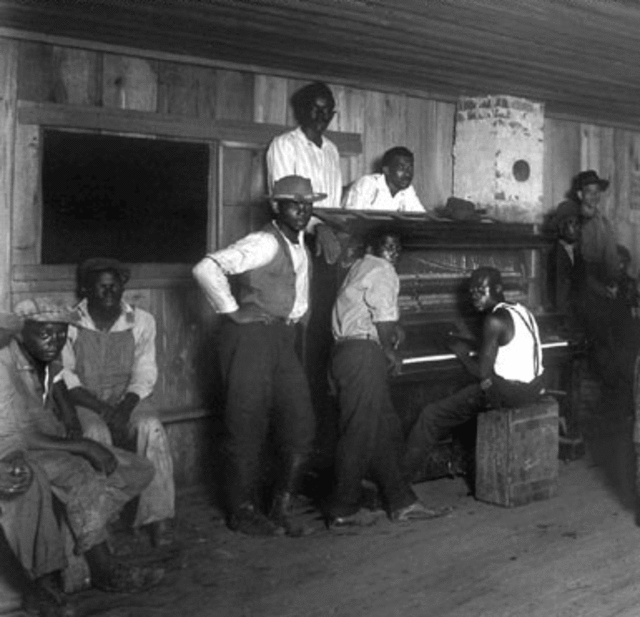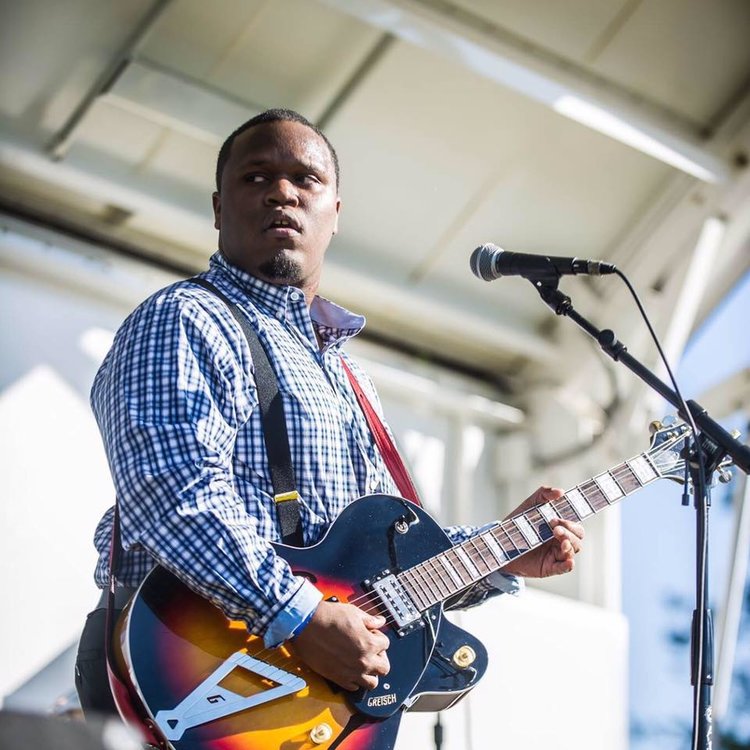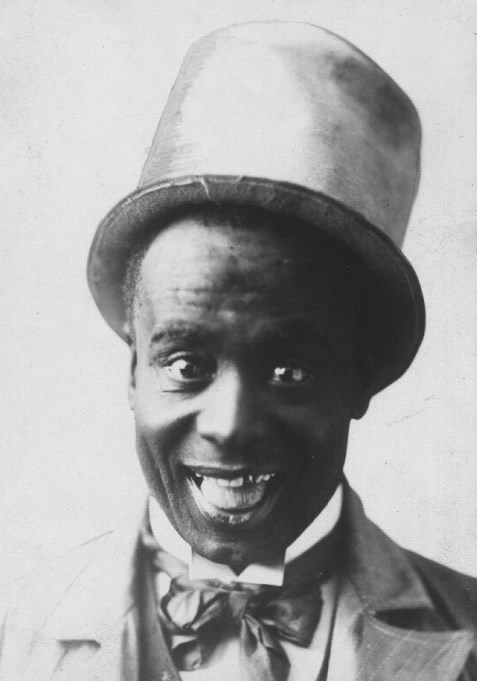By Publisher:
Lamont Jack Pearley
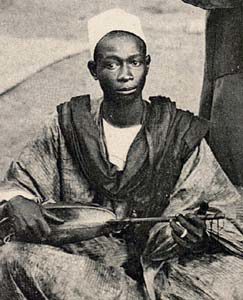 We all have our feelings and thought on what the Blues are. We all know where it came from, and most of us don’t mind having that dialog. Others really don’t like discussing the conditions that spawned if you will, Blues Music, Negro Spirituals, Prison Songs and Work songs. When one brings up this history, it’s labeled as being divisive, or not letting go of the past…or just plain out right reverse racism. But the truth of the matter, it’s none of the above – 1, and 2 – everything that came with and from the music should not only be discussed, but remembered. More importantly…taught, and shared amongst those who are the descendants of the suffered. It’s the history of Blacks in America, and the more the entire story is hushed, sanitized or even changed…the more generations of Black kids and adults would be lost and disconnected to who they are and from where they came.
We all have our feelings and thought on what the Blues are. We all know where it came from, and most of us don’t mind having that dialog. Others really don’t like discussing the conditions that spawned if you will, Blues Music, Negro Spirituals, Prison Songs and Work songs. When one brings up this history, it’s labeled as being divisive, or not letting go of the past…or just plain out right reverse racism. But the truth of the matter, it’s none of the above – 1, and 2 – everything that came with and from the music should not only be discussed, but remembered. More importantly…taught, and shared amongst those who are the descendants of the suffered. It’s the history of Blacks in America, and the more the entire story is hushed, sanitized or even changed…the more generations of Black kids and adults would be lost and disconnected to who they are and from where they came.
The music alone, coming from Africa in the traditions of the Griot, folklore, Spiritual
celebrations and rituals, as well as plain ole stories of tribes and communities passed down, is the total essence of Blues. Pick up any Leadbelly song, and you will find out African American history of the time, and before. The songs of the oppressed, the field hollers…they are more than messages, entertainment and passed time. It’s History books in songs, ourstory documents in rhythm, and this should be incorporated in school curriculum. This should also be incorporated in dinner table discussions at the homes of Black Families. A great many Black leaders during the Civil Rights movement, and prior, all spoke of Black people being robbed of their names, culture, and habitat, brought to uncertain and unfamiliar terrain and wasn’t allowed to speak in their native tongue. If it weren’t for the songs of that era, would we really have a full understanding of who we are, and what it was like. If it weren’t for the Black Writers of the time, the Renaissance, would we know the true version of our struggle and overcoming and not the version from whom ever wants us to know bits and pieces for what ever agenda.
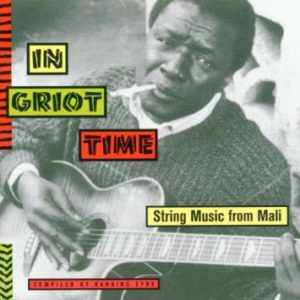 Why is this so important? What is my message? Blues, Ol Negro Spirituals, Prison Songs, Work Songs…Hip Hop..should be part of school curriculum, but more importantly, it should be listened to and discussed in the home of the Black Community. There should be Black folk taking part in Historical events with their families that present what we know as American Music that derived from the oppression of Black people. An honest place! A place that doesn’t sanitize the truth. A place that speaks on everything that happened. Look at the case in Texas. If it wasn’t for this young man, by the name of Coby Burren, and his mother Roni Dean-Burren who unraveled a sneak attack against the history of Blacks in America by removing the term Slavery and stating the The Middle Passage was just a ship full of workers, Immigrants coming to America, the next generation of Black kids would have grown up thinking we came here on our own, for honest work. Rather than what actually happened.
Why is this so important? What is my message? Blues, Ol Negro Spirituals, Prison Songs, Work Songs…Hip Hop..should be part of school curriculum, but more importantly, it should be listened to and discussed in the home of the Black Community. There should be Black folk taking part in Historical events with their families that present what we know as American Music that derived from the oppression of Black people. An honest place! A place that doesn’t sanitize the truth. A place that speaks on everything that happened. Look at the case in Texas. If it wasn’t for this young man, by the name of Coby Burren, and his mother Roni Dean-Burren who unraveled a sneak attack against the history of Blacks in America by removing the term Slavery and stating the The Middle Passage was just a ship full of workers, Immigrants coming to America, the next generation of Black kids would have grown up thinking we came here on our own, for honest work. Rather than what actually happened.
You say that Blues, Hip Hop and the like is in school, and kids are learning this Can our-story be altered into his-story?
You say music is in the Black home? That most Black homes are broken up for one reason or another, and that because of today’s economy there’s no time to sit at the table with your family and have dialog. I have a deep feeling that if a Black house hold took the time to sit down with each other, listen to the Blues, Ragtime, read poems from great Black writers…the dynamic of that household and behavior of the children would change drastically, outside of the normal behavior of a child and parent(s) having to work to provide.
I’ve asked several of my guests on the Talking Bout The Blues podcast do they feel there is a disconnect between The last two generations and Blues, Spirituals and the like, and the answer is always yes. I’ve spoken in detail with White and Black musicians and Blues enthusiasts about the disconnect of the Black community and culture in comparison to the White community and their appreciation of our music, heritage and culture. I get the same answer. Does appropriation exist? Absolutely! But the real question is, where does appropriation fit in when the descendants of a culture and music leave it for dead, and another appreciates it and studies it. The problem lies with us understanding the importance of reconnecting with our entire heritage, culture and existence in America..and prior…and not just picking amd choosing what’s suitable.
How did we get disconnected from our history..here and prior. Why isn’t the entire
story told? Or better yet, why do people take it so personal when a Black musician, a descendant of the music and heritage brings up the entire history, and not just the romanticized version. Better yet, ask why 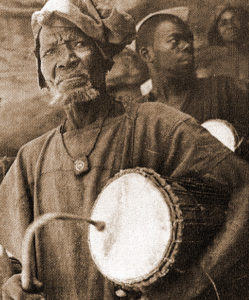 there is a chain on the Statue of Liberty, but it’s not visible. Ask why the original Statue was made with chains, yet the creator of the statue had to remove those chains, but thought it was important to at least keep a piece of it there, even if out of site. Then check and see how victims of the Middle Passage are described at the site. (Hopefully they upgraded that information).
there is a chain on the Statue of Liberty, but it’s not visible. Ask why the original Statue was made with chains, yet the creator of the statue had to remove those chains, but thought it was important to at least keep a piece of it there, even if out of site. Then check and see how victims of the Middle Passage are described at the site. (Hopefully they upgraded that information).
I mentioned earlier the Griot. They are very important for West African culture and community. The griots’ role has traditionally been to preserve the genealogies, historical narratives, and oral traditions of their people; praise songs are also part of the griot’s repertoire. Many griots play the kora, a long-necked harp lute with 21 strings. In addition to serving as the primary storytellers of their people, griots have also served as advisers and diplomats. Over the centuries their advisory and diplomatic roles have diminished somewhat, and their entertainment appeal has become more widespread.
I’m sure that sounds very familiar. It should, it sounds like the Blues, Ol Negro Spirituals, Prison songs, Work Songs, ministers at the local Black Church..etc. As we can see, the scholastic industry is working to rewrite our history to their convenience. Other cultures admire, study, research and celebrate our culture and heritage. And after a while, it becomes infused into theirs. What will happen to our culture and history? What would happen to us? How can we reconnect our people to a history that they only get one side of the story of. As artists, Musicians, enthusiasts and historians, we must take on the role of the Griot….preserve our Culture…celebrate our Heritage..and pass down the stories and history of our people from before the Middle Passage until you take your last breathe and your next generation can continue ourstory.
As I close, I wish to leave you with some in-depth thoughts from Dr. Joy DeGruy!!
 Dr. Joy DeGruy is a nationally and internationally renowned researcher, educator, author and presenter. She is an ambassador for healing and a voice for those who’ve struggled in search of the past, and continue to struggle through the present. Dr. Joy is the acclaimed author of Post Traumatic Slave Syndrome — America’s Legacy of Enduring Injury and Healing, Post Traumatic Slave Syndrome: The Study Guide , with a second book in the works , Post Traumatic Slave Syndrome Part 2: Be The Healing.
Dr. Joy DeGruy is a nationally and internationally renowned researcher, educator, author and presenter. She is an ambassador for healing and a voice for those who’ve struggled in search of the past, and continue to struggle through the present. Dr. Joy is the acclaimed author of Post Traumatic Slave Syndrome — America’s Legacy of Enduring Injury and Healing, Post Traumatic Slave Syndrome: The Study Guide , with a second book in the works , Post Traumatic Slave Syndrome Part 2: Be The Healing.
Her lectures and stance on Post Traumatic Slave syndrome expresses that
P.T.S.S. is a theory that explains the etiology of many of the adaptive survival behaviors in African American communities throughout the United States and the Diaspora. It is a condition that exists as a consequence of multigenerational oppression of Africans and their descendants resulting from centuries of chattel slavery. A form of slavery which was predicated on the belief that African Americans were inherently/genetically inferior to whites. This was then followed by institutionalized racism which continues to perpetuate injury.
Thus, resulting in M.A.P.:
- M: Multigenerational trauma together with continued oppression;
- A: Absence of opportunity to heal or access the benefits available in the society; leads to
- P: Post Traumatic Slave Syndrome.
Dr. DeGruy also states that in order to tell the actual version of our heritage from the Ship to America and what happened here, the lessons in the school books we’ve been learning for years would have to be erased and re-written….similar to the Texas textbook that took a chance at re-writing American history. This is an on going thing, and the Blues happened to be up close and personal with a good deal of these events. And that’s why I feel it’s important for Black students, children, adults, families and communities…to not only take part in the Blues culture, but study it, learn it..see how it relates to you and your actual family lineage. There is a deep rooted connection, and a lot of answers to unanswered questions that we would normal get.
I’ll leave you with an interview with Dr DeGruy by the late great Gill Noble for his show Like It Is
